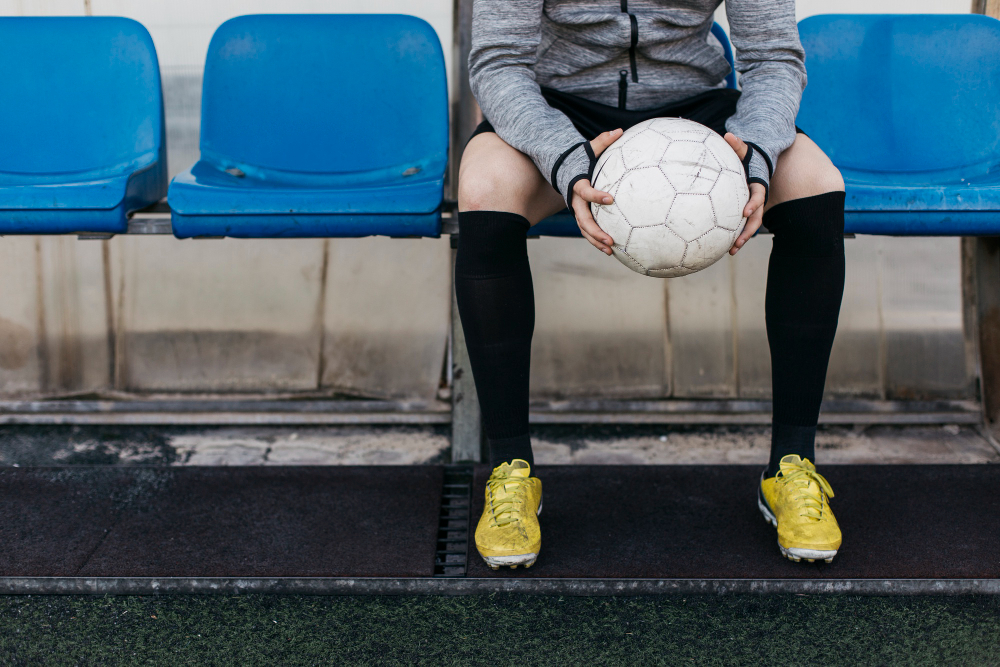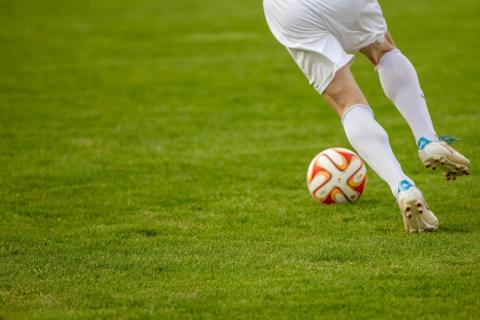A soccer project in prisons improves the behaviour of inmates and their chances of reintegration
The Twinning project is a UK-based initiative that organises soccer-based programmes, with the collaboration of professional clubs such as some Premier League clubs, to improve the mental and physical health of prisoners. Research has studied the behaviour of more than 670 of these participants and a group that did not participate, as well as collecting data related to the possible reintegration of those who were in this programme. According to the authors, who publish their research in the journal Nature Human Behaviour, ‘the results indicate that social bonding is associated with better behaviour in prison and a greater willingness of host communities to support reintegration efforts’.

Ángel Gómez - fútbol reclusos EN
Ángel Gómez Jiménez
Professor in the Department of Social and Organisational Psychology at the UNED
The research is based on a project that focuses on sport (a football league) as a possible means of reducing recidivism in people deprived of their liberty. d. It builds on Martha Newson's previous work on violence in sport, the work of ritual expert Harvey Whitehouse, and research on intense experiences shared with others as a cause or means of entrenching recidivism in the community, as well as the work of the researcher on the role of the sport league in reducing recidivism.
The study is rigorous because it not only includes several studies, but also has control groups and longitudinal data that support the efficacy of the intervention.
This research is a real-world application of the identity fusion theory, originated by Professors Angel Gomez (i.e., myself) and Bill Swann of the University of Texas, Austin, USA. It was originally created to explain extreme behaviour and why some people are willing to fight and die for a group, values, and beliefs. However, when the fusion is purposeful, this visceral commitment can lead to positive behaviours or the reduction of negative behaviours (as is the case in the United States).
The theory has been used previously in research with inmates deprived of liberty (as is the case in several publications by my own team), but has not been put into practice to date for these purposes, which is the main contribution of this paper.
The main limitation is that it is not a theoretical contribution to the previous literature. However, this is not the aim of the work. The possibility of implementing in real situations what is investigated in the laboratory is often very limited, which gives the added value to this research.
César San Juan - fútbol reclusos EN
César San Juan
Researcher in the Department of Social Psychology and lecturer in Criminal Psychology at the University of the Basque Country (UPV/EHU)
The research has all the elements and precautions of an empirical study, as well as having a control group that accredits the reliability and validity of the results obtained.
In fact, the experience is not new, as sport has been used in many prisons as a way of improving the psychosocial skills of inmates for their social reintegration and, in the best of cases, to reduce the rate of recidivism. In particular, rugby has been shown to be a particularly conducive activity for violent inmates who find it an effective way to control their aggressive impulses.
What is new in this research is that its efficacy has been evaluated with a control group. Most of those experiences to which I have alluded, despite having apparent very good results, were not accredited with the corresponding measurements in the context of a scientific study.
The results of this work are promising and support what previous experience already dictated. In any case, more research is needed to test the effectiveness of these activities in terms of the different psychosocial ‘opportunities’ available to inmates before and after prison in terms of vocational skills, social and family support, as well as personal psychological resources. It would also be interesting to test the medium and long-term impact on the desistance from criminal careers and the corresponding reduction in the recidivism rate implied by the improvement, at least in the short term, of the social competences provided by sport activities.
Newson et al.
- Research article
- Peer reviewed
- Observational study
- People



